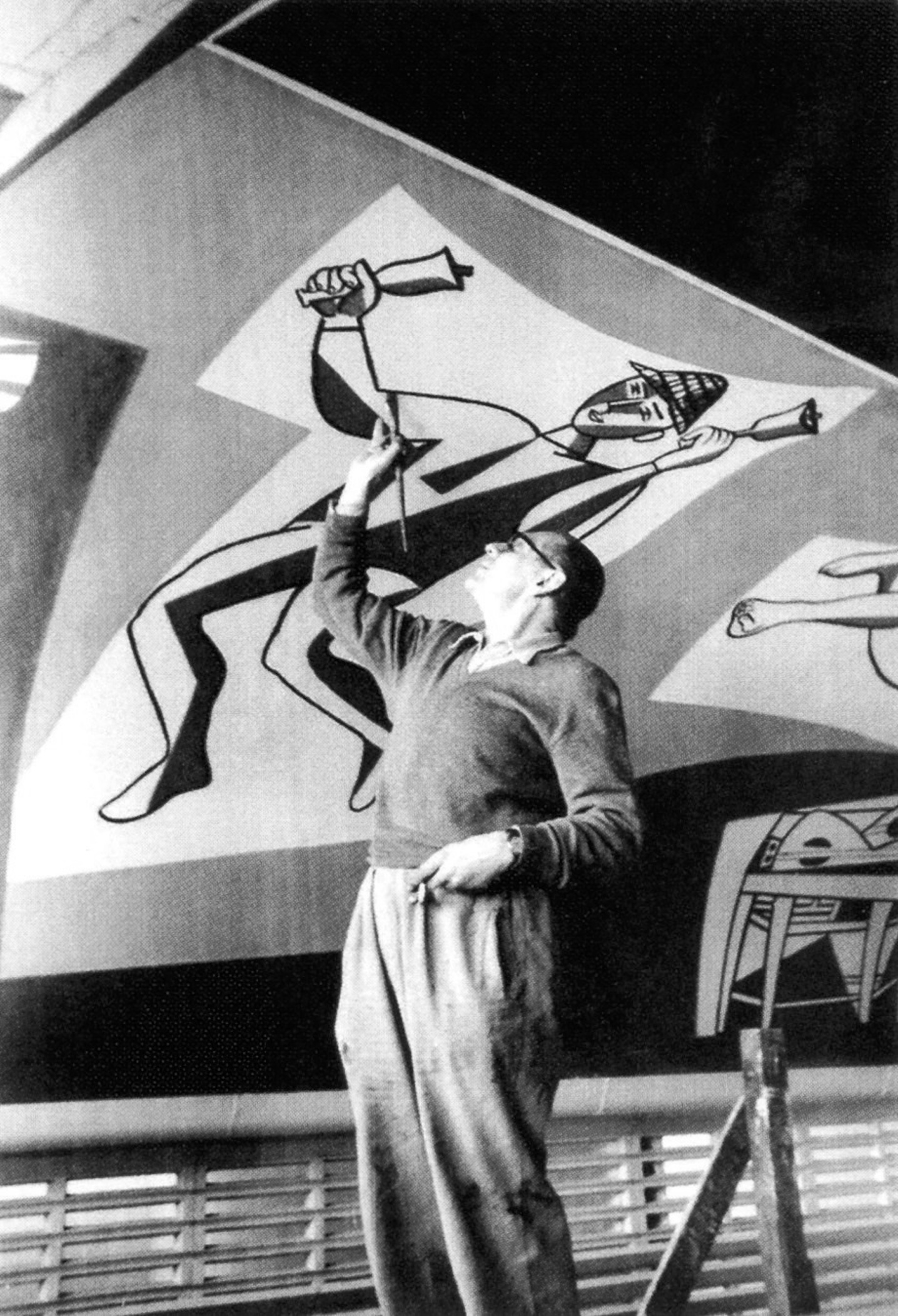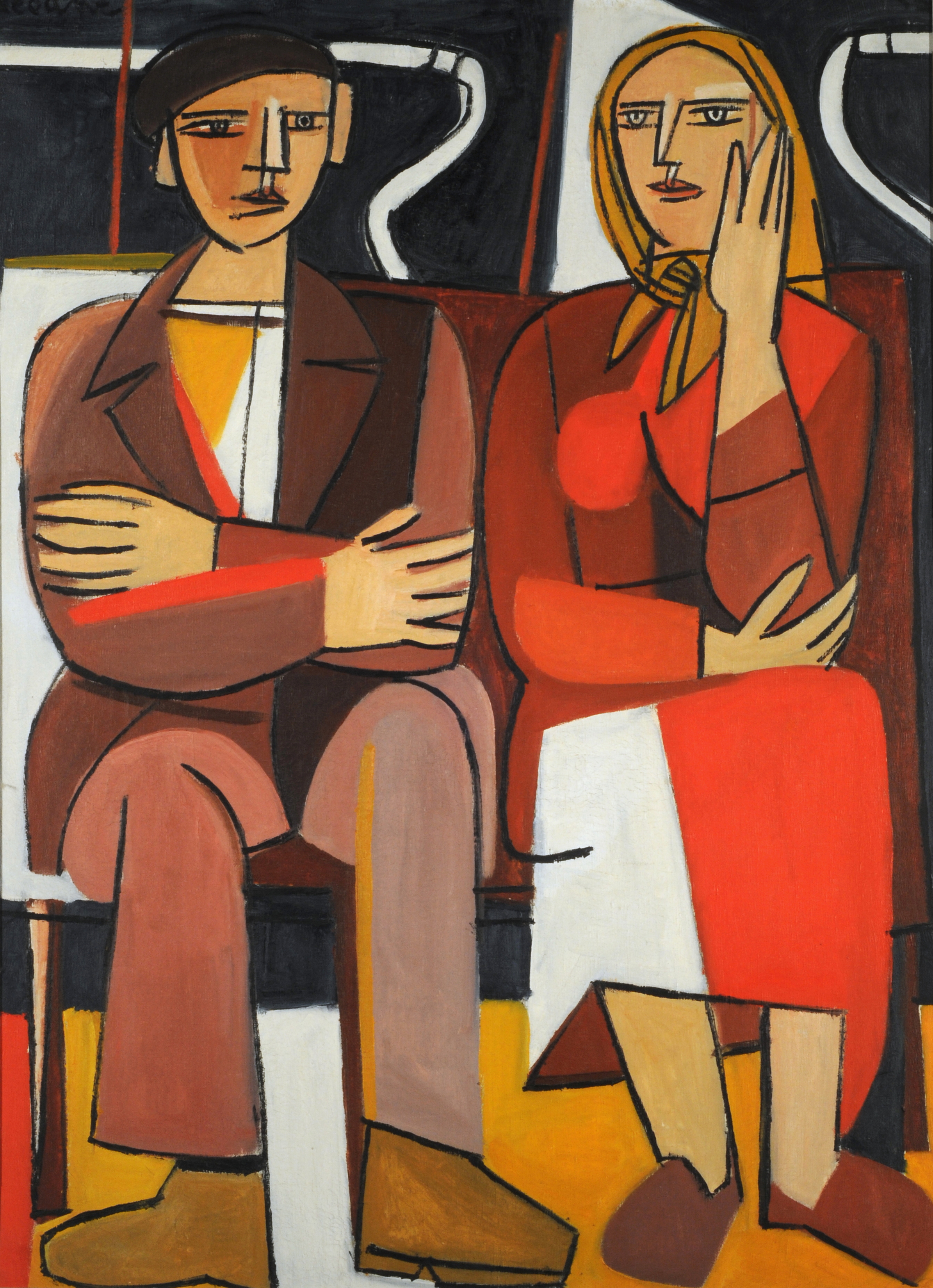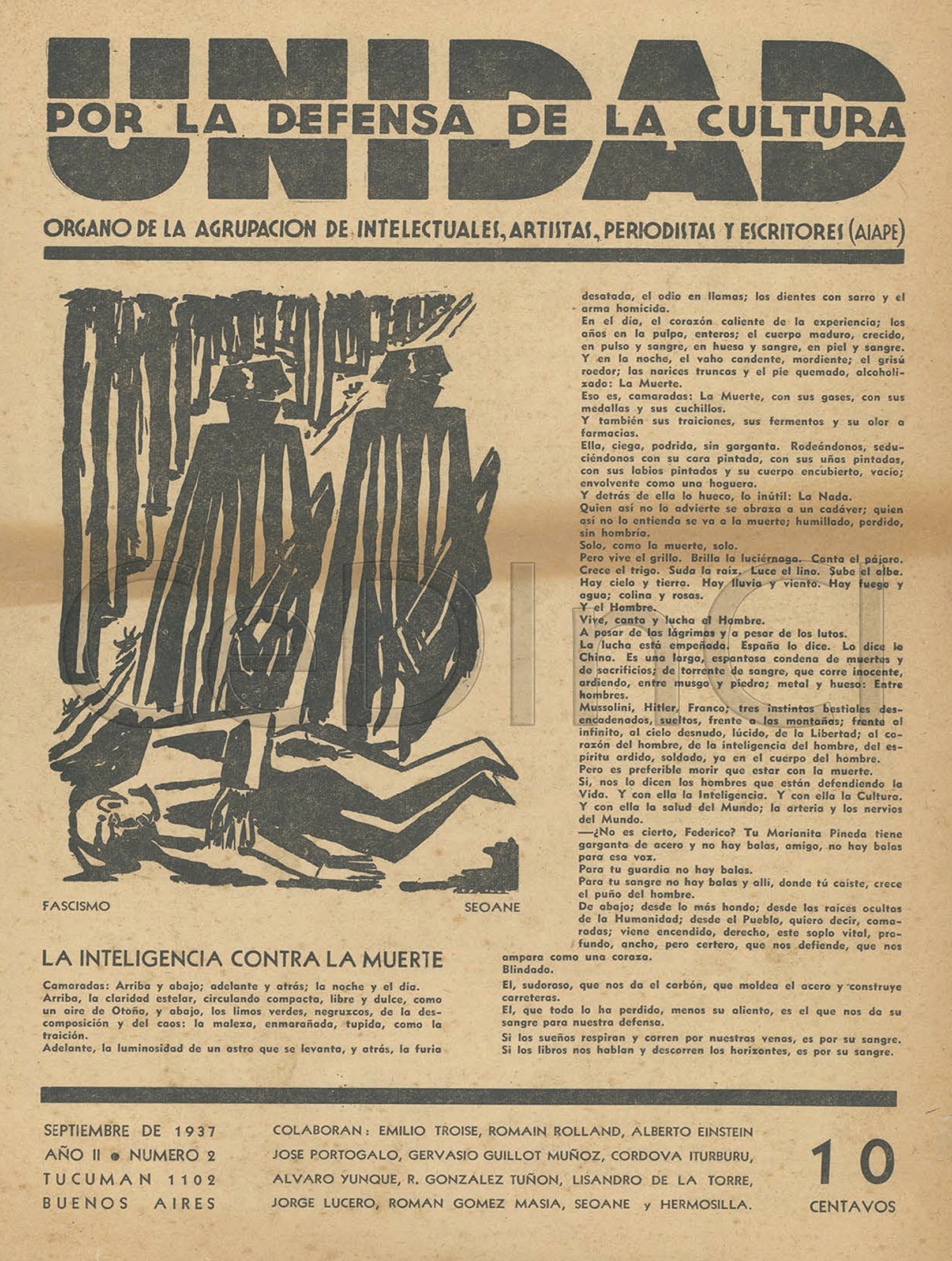Archive
Luis Seoane
- Luis
- Seoane
Luís Seoane
- 01-06-1910
- Buenos Aires (AR)
- 05-04-1979
- A Coruña (ES)
- PainterMuralistIllustratorLawyer
Luis Seoane is an artist mainly known for his murals, paintings and illustrations. He spent his childhood and youth in Galicia, before settling in Buenos Aires in 1936.
Word Count: 27

Luis Seoane painting the mural Los Músicos at Galería Santa Fe in Buenos Aires, 1953 (Díaz Arias de Castro 2019, 24 and via Wikimedia Commons). 
Luis Seoane, Emigrantes, 1953, oil on canvas, 108 x 80 cm. Museo Nacional de Bellas Artes, Buenos Aires. 
Luis Seoane, Fascimo, cover of Unidad por la Defensa de la Cultura, no. 2, September 1937. CeDInCI, Buenos Aires. Bozal, Valeriano. “Luís Seoane. Pinturas, dibujos y grabados (1932-1979).” Luís Seoane. Pinturas, dibujos y grabados. 1932–1979, Centro Galego de Arte Contemporânea, Santiago de Compostela / Museo de Arte Moderno de Buenos Aires, Buenos Aires, 2000, pp. 17–51.
Díaz Arias de Castro, Xosé. "Luis Seoane; Unha vida e unha obra con Galicia ao fondo." Seoane. Real Academia Galega de Belas Artes, Deputación Provincial, 2019, pp. 3–24.
Dolinko, Silvia. “'Imágenes de Galicia', grabados de Luís Seoane en Buenos Aires.” Los estudios gallegos en tiempos de cambio y transformación: de Buenos Aires a Galicia, special issue of Madrygal. Revista de Estudios Gallegos, vol. 20 (Núm. especial), 2017, pp. 73–86, doi: http://dx.doi.org/10.5209/MADR.56221. Accessed 17 February 2021.
Wechsler, Diana. “Convergencias, complicidades. Luís Seoane en las redes de la cultura antifascista.” Luís Seoane, entre Galicia y la Argentina (Colección La Argentina plural), edited by Fernando Devoto and Ramón Villares, Biblos, 2012, pp. 221–235.
Word Count: 151
Fundación Luis Seoane, A Coruña.
Word Count: 7
A Coruña and Santiago de Compostela, Galicia, Spain (1916–1936); Buenos Aires, Argentina (1936)
Calle Montevideo, Buenos Aires (residence).
- Buenos Aires
- Laura Karp Lugo. "Luis Seoane." METROMOD Archive, 2021, https://archive.metromod.net/viewer.p/69/2950/object/5138-11007218, last modified: 12-05-2021.
-
Grete SternPhotographerBuenos Aires
Grete Stern is one of the photographers that represent modern photography in Argentina. Her house in Ramos Mejía was a meeting place for local and foreign artists and intellectuals.
Word Count: 30
UnidadMagazineBuenos AiresFrom 1936, the anti-fascist movement in Argentina found one of its most consistent opinion platforms in the magazine Unidad, organ of the Association of Intellectuals, Artists, Journalists and Writers (AIAPE).
Word Count: 29
Galería Pacifico’s muralsMuralBuildingBuenos AiresA key episode in Argentina’s muralism was the creation of an extensive muralist programme at the Galerías Pacífico in 1946, carried out by the Grupo Taller de Arte Mural.
Word Count: 31
Clément MoreauGraphic ArtistBuenos AiresGerman-born Clément Moreau had to exile to Buenos Aires due to his political activism. There, he was well integrated into the artistic milieu and published his caricatures in many publications.
Word Count: 31
Horacio CoppolaFilmmakerPhotographerBuenos AiresBorn in Buenos Aires, Horacio Coppola is one of the photographers who represent modern photography in Argentina.
Word Count: 17